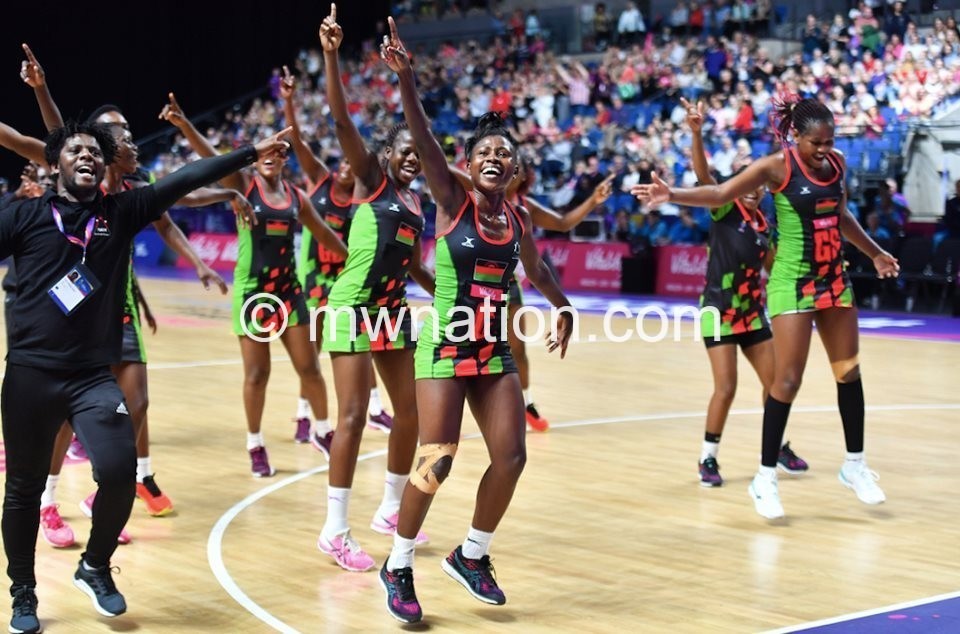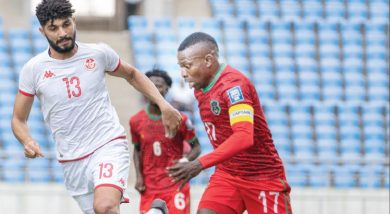Govt responds to players’ plea
Government has responded to national team players’ outcry to improve their game bonuses and allowances, but this will come at a cost as camp training will be cut to a maximum seven days, Nation on Sunday has learnt.
The national team players—both women’s and men’s football and their netball counterparts, have for several years been pushing for an increment of their perks which are the lowest in the region and have not been revised for at least a decade.

Malawi national netball team players game bonus remains at K20 000 for a win while their daily training allowance and external allowance stand at K2 000 and $50, respectively.
The Flames get K30 000 as game bonus while their female counterparts get K15 000. They both get K1 000 training allowance and $50 ( about K3 500) external allowance.
Government, through Malawi National Council of Sports is set to announce new national team players incentives which will see players’ allowances categorised based on the level and stage of a competition.
Sports Council acting chief executive Henry Mereka said this follows a strengths and weaknesses, as well as its external opportunities and threats (Swot) analysis of national teams perks set up.
“We are ready to introduce the new national team perks which have been adjusted upwards. But unlike in the past when we had uniform bonuses for all competitions and levels, this time we have categorised them.
“For example, game bonuses for Cosafa Cup will not be the same as the African Cup of Nations or World Cup qualifiers. The game bonuses for the preliminary round of a competition will also not be the same as those of the group stages or quarter-finals. This will go all the way up to when the team has qualified for the tournaments’ finals,” he said.
But the flip side of it all is that Sports Council will introduce a maximum period of seven days for the national team’s camp training, which though it says it is aimed at improving efficiency has largely been seen as cost cutting measure.
“We noted that national teams camp training is too long. We have had situations in which our national teams camp for four weeks. Ideally, the national team is not for training players the basics. It is supposed to be used for the coach to tell the players his game tactics.
“But what we have now is that we want to use the national team camps to teach the players the basics. As a result, we lose focus. We want national team camp to be used for its intended purpose. That’s why we are saying seven days is enough,” said Mereka.
Both Football Association of Malawi (FAM) and Netball Association of Malawi (NAM) submitted proposals for new national teams’ incentives.
FAM president Walter Nyamilandu said they are waiting for official communication from government through Sports Council on their proposal.
“We have been in touch with Sports Council and Sports Ministry on this matter. We submitted our recommendations to Sports Council for approval bearing in mind that the national teams are funded by Malawi government,” he said.
However, Nyamilandu had reservations on the seven day camp training.
“We will discuss implications of the report with the technical committee. There is a need to strike the right balance between efficiency of training camps and productivity and effectiveness of the camps.
“The technical committee will need to offer guidance from the productivity point of view so that we achieve the desired outcome at the end of the day.
“Suffice to say, that cost considerations should not be done at the expense of excellent performance and positive results. Similarly, the technical panel should also be cost conscious with operations so that we live within the means,” he said.
Though national teams have different approach towards national team camp, Fifa rules and regulations allow clubs to release players at least five days before a match.
Most national teams whose leagues are fully professional prefer five days of camp since their players are already advanced in game tactics.
Soccer analyst Charles Nyirenda observed that staying in camp for a long time has not proved to be a gateway to good results.
“The way I look at it is that we still have a mentality that if the team stays long in camp then it will perform well.
“That mentality is what we need to get rid of. Fifa knew what they were doing when they set the five days for clubs to release players for national team camp,” he said.





